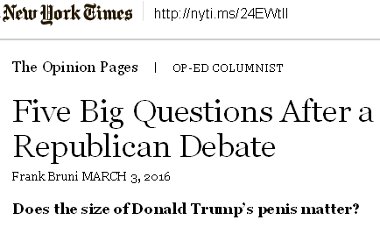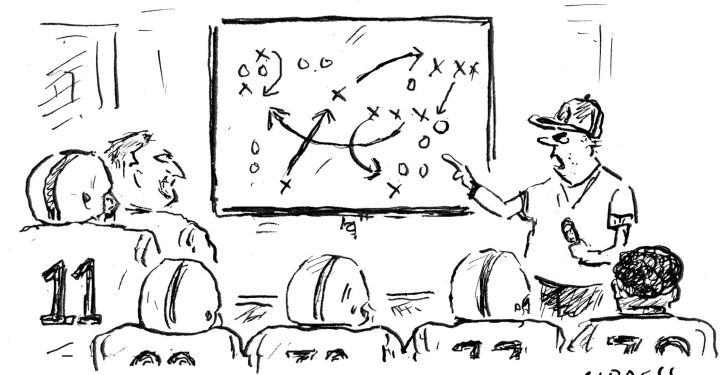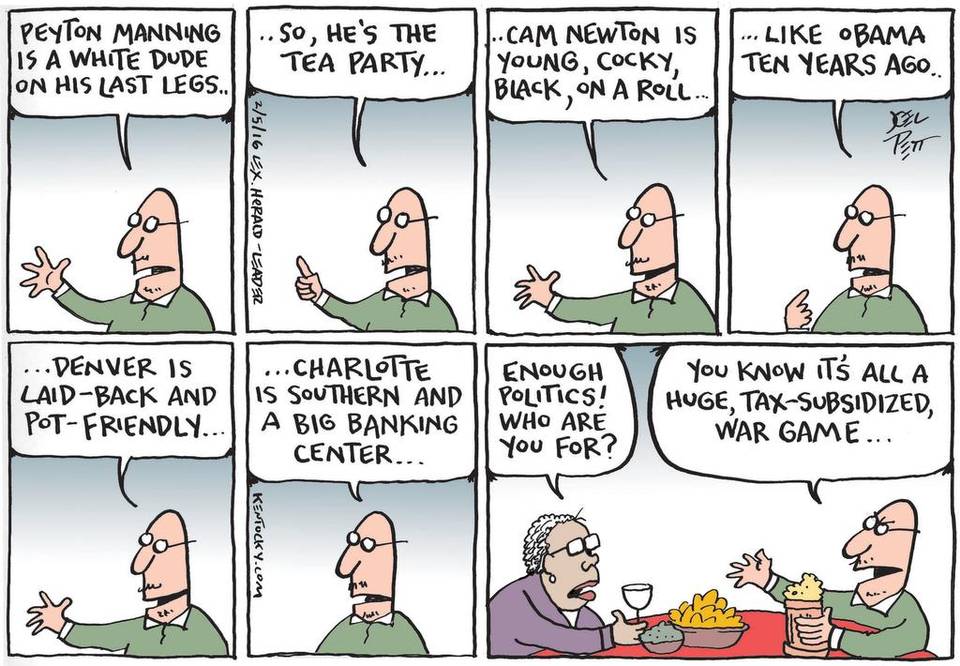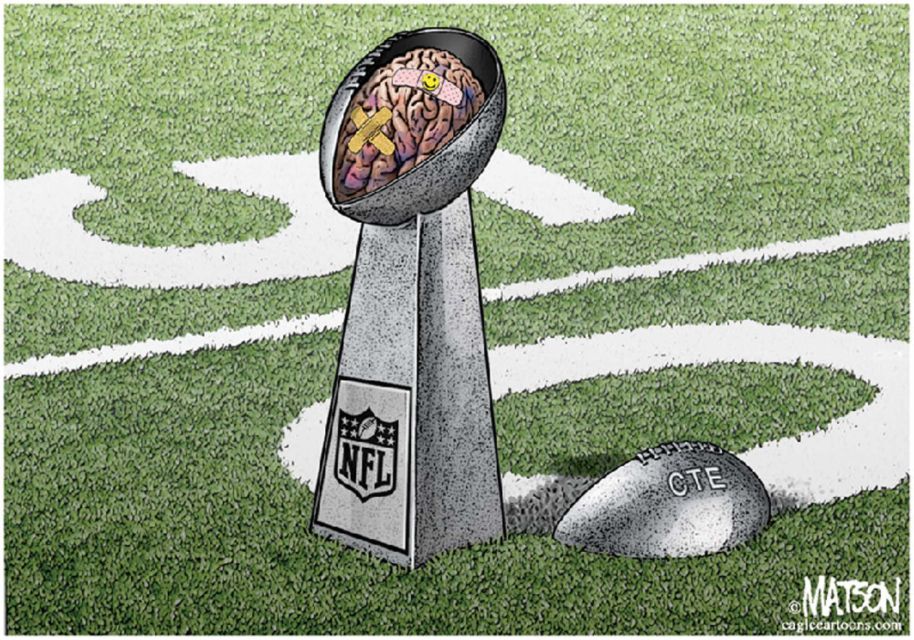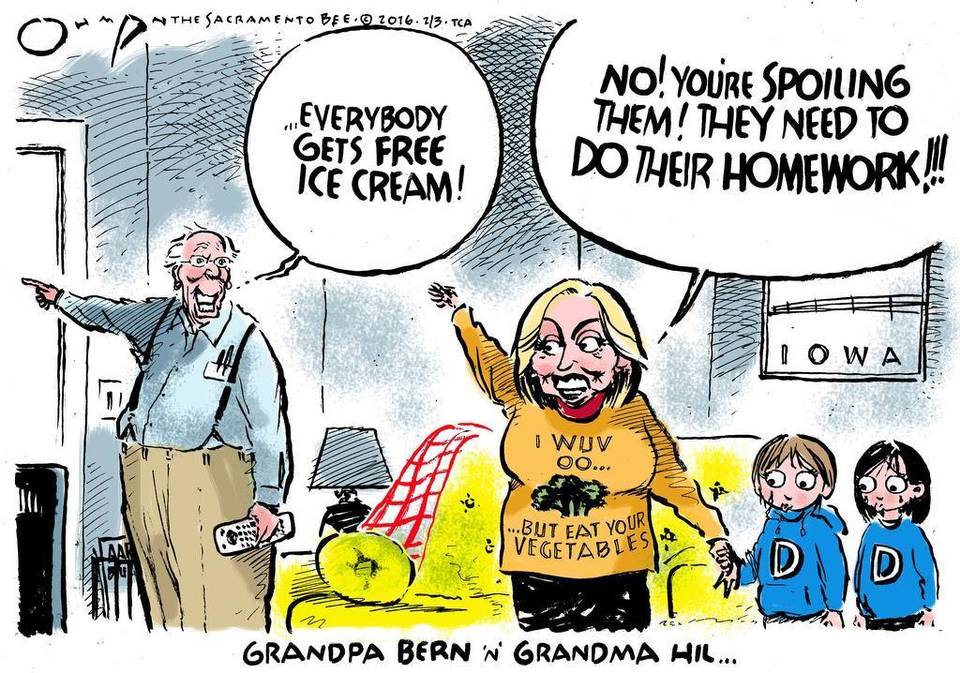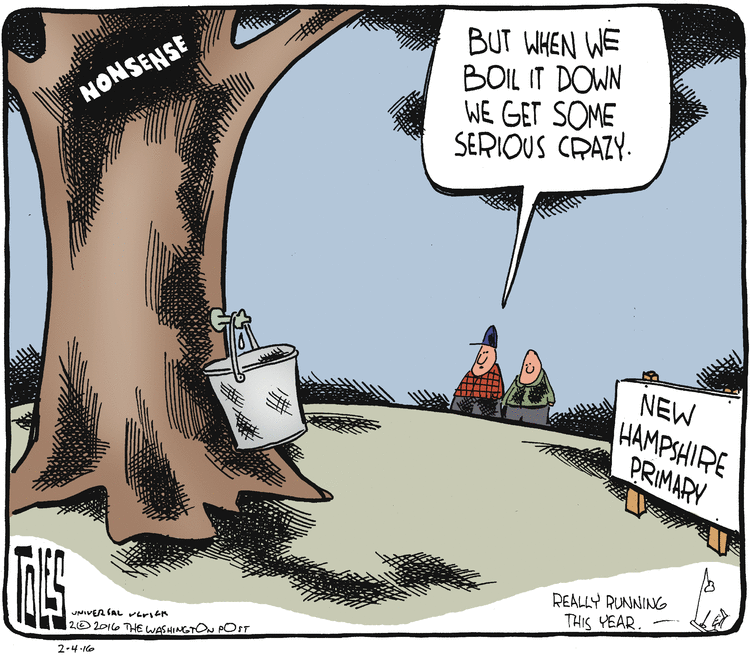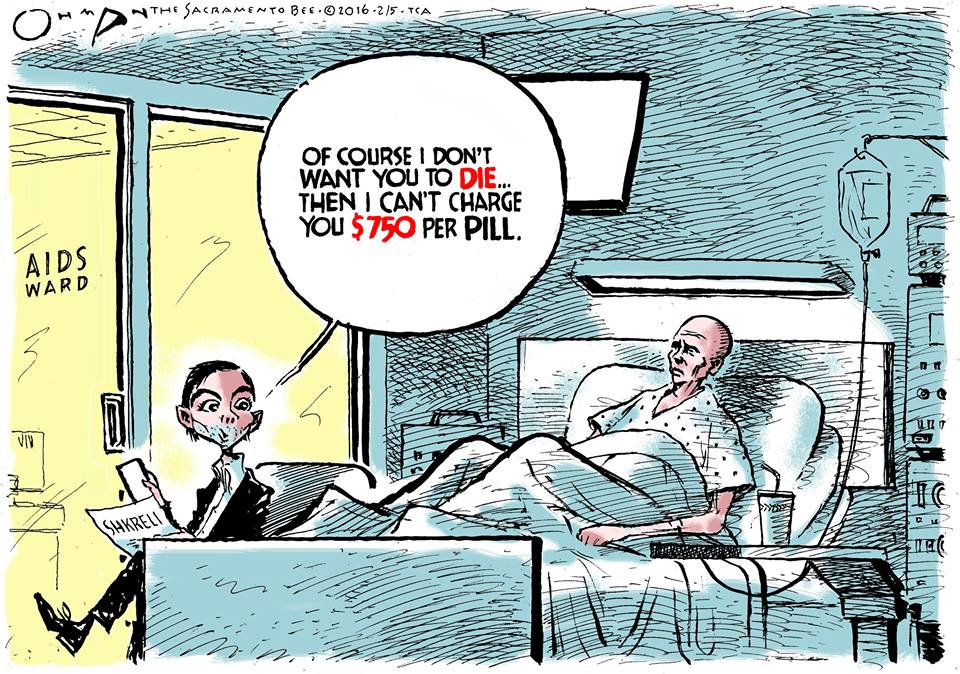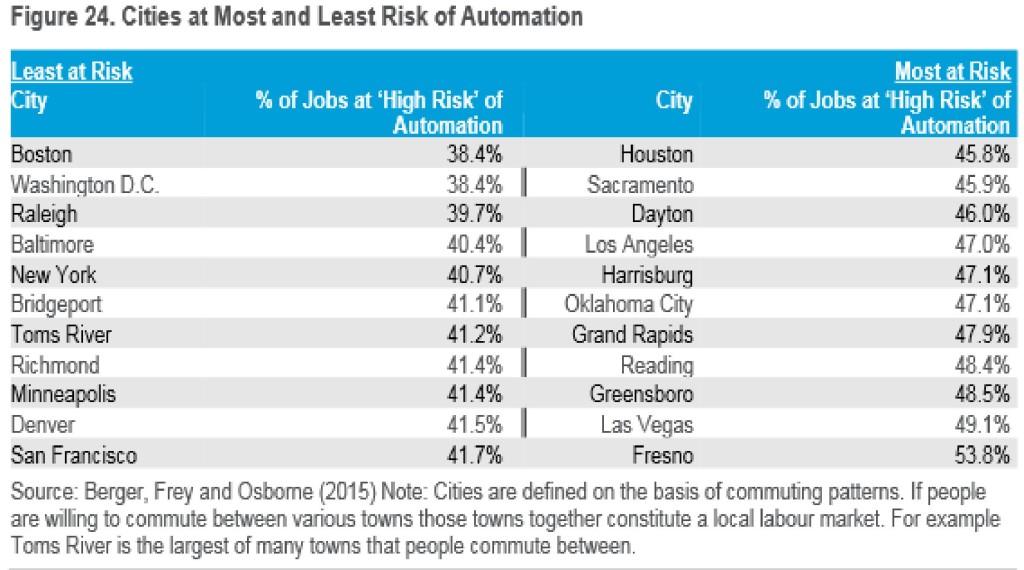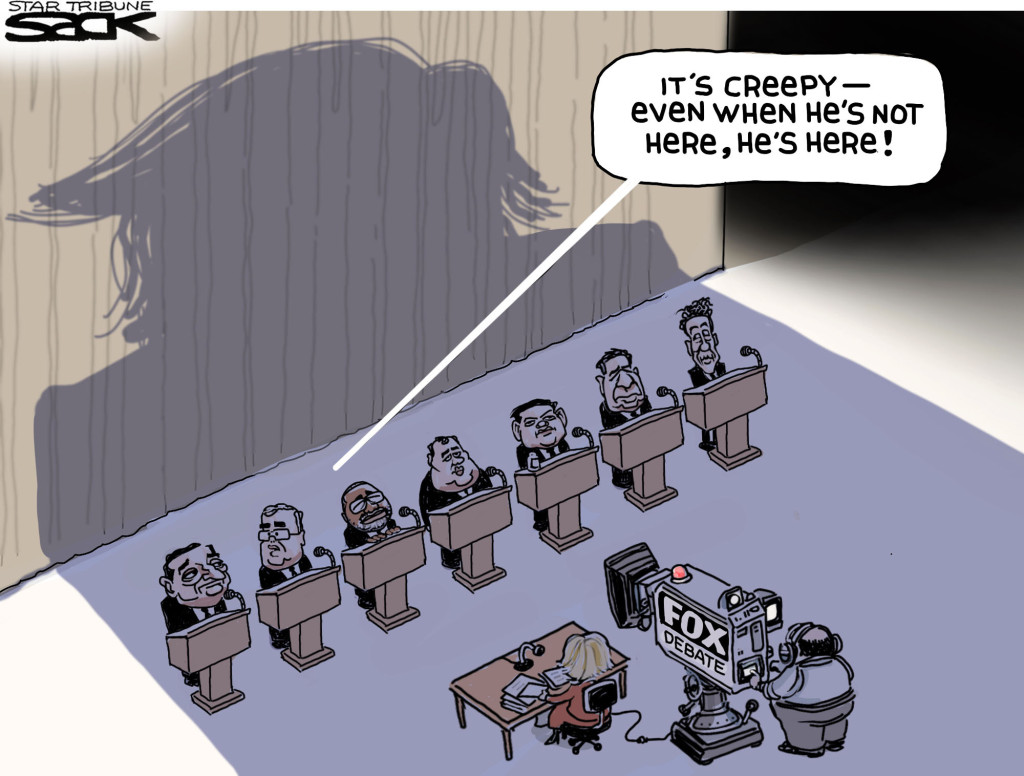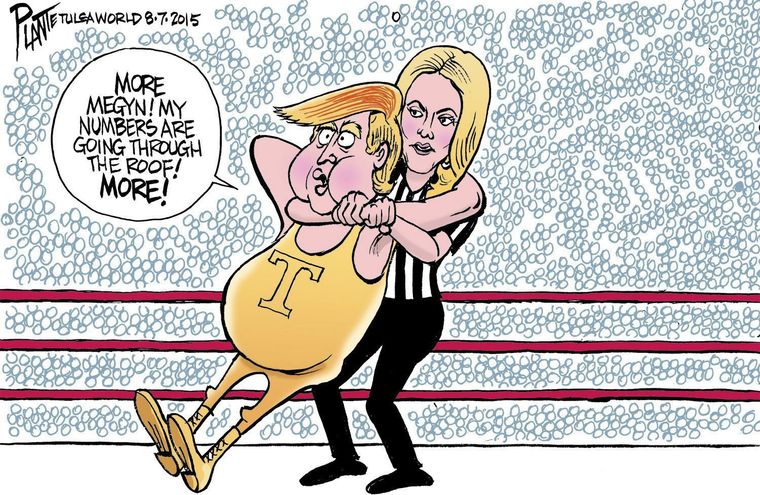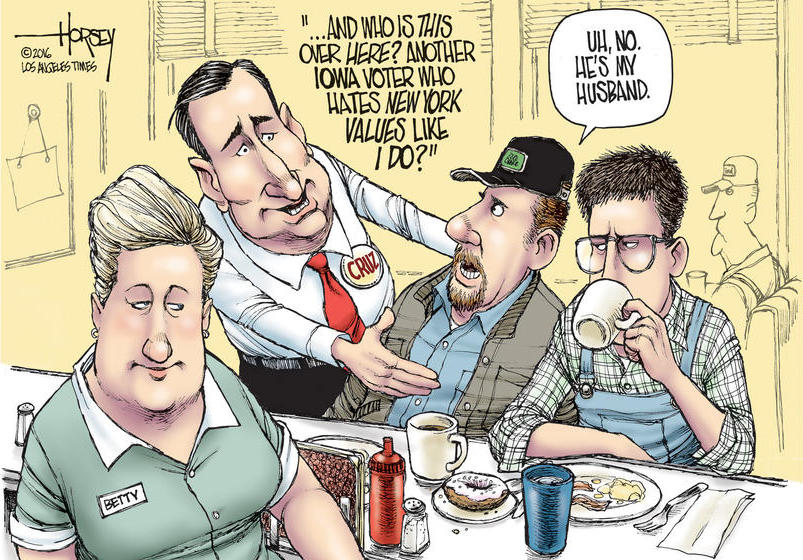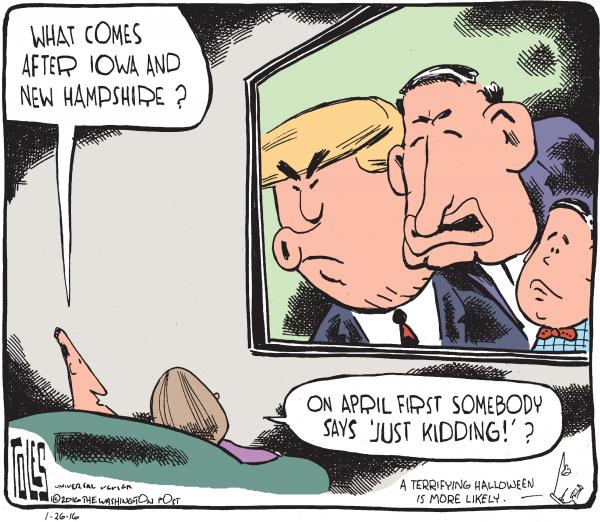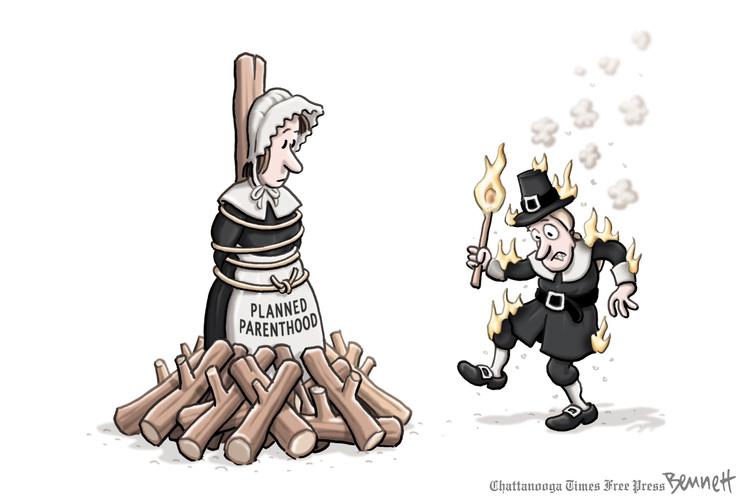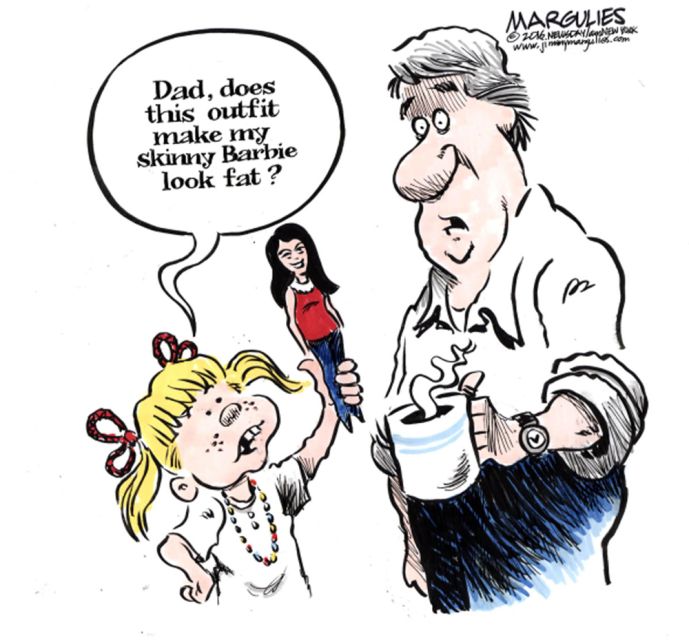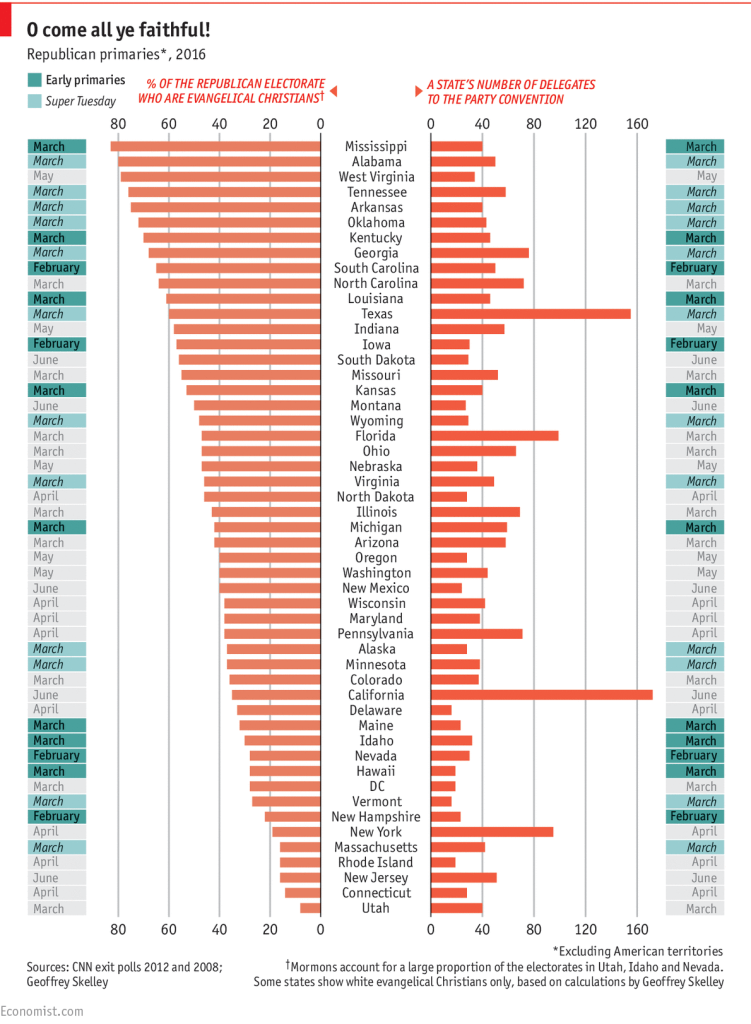(This is the second and final column on the Progressive Movement)
Few issues in the history of 20th and 21st century America have inspired more disagreement than the value of the Progressive movement to our society. Our high school texts taught that it was a movement by the people to curb the power of the special interests in our government:

The Bosses of the Senate by Joseph Keppler, 1889
The 1890s Progressive Movement was a response to dislocations in American life. There had been rapid industrialization of the economy, but there had been no corresponding changes in social and political institutions. Economic power had moved to ever larger private businesses, while social and political life remained centered primarily in local communities, even within rapidly growing cities, with great variability in quality of life.
But early Progressives believed that the problems society faced (poverty, violence, greed, racism, class warfare) could best be addressed by providing good education, better working conditions and an efficient workplace. The desire to regulate big business was mostly focused on creating a fair(er) deal for small businesses and workers. Others encouraged Americans to register to vote, fight political corruption, and let the voting public decide how issues should best be addressed (via direct election of senators, the initiative, and the referendum).
Essentially the struggle was a clash between the “public interest” and “corporate privilege.”
Daniel Rodgers’s Atlantic Crossings (1998), shows how European reforms at the time influenced American progressives, suggesting that the movement was not just an American phenomenon, but had roots in a European process of change. He describes the international roots of social reforms such as city planning, workplace regulation, rural cooperatives, municipal transportation, and public housing that traveled across the ocean to our shores.
This is something we see today. Populist movements from the left and the right are roiling Europe, just as they are in America.
In the mid-1930s, the New Deal allowed the country to return to a pent-up agenda of its Progressive past. Once again, we had an economic crisis, once again, the power of business was outsized versus the power of the worker.
Another Roosevelt reformer stepped into the role of Progressive-in-Chief. But where Teddy was a Republican, FDR was a Democrat. Regardless, change again ensued.
We hear Progressivism referred to as synonymous with the American welfare state. But, the original Progressives did not believe that a ‘welfare state’ was an end goal. In fact, the term ‘welfare state’ did not come into currency until the end of the 1940s, as a new label in the Republican Party’s attack on Social Security and other programs of the New Deal.
As we wrote in the review of One Nation Under God (2015) by Kevin Kruse, James Fifield, a minister who worked to bring Corporate America and Christians together said in 1935:
Every Christian should oppose the totalitarian trends of the New Deal…
Overall, Kruse’s book is an excellent analysis of how Christian fundamentalism and capitalism were conflated in the 1950s to erode the divide between church and state, re-casting Progressive political philosophy as both “un-American”, and “anti-Christian” at the same time.
Progressives were called Reds or socialists. It was a charge that would follow Progressives throughout the 20th Century, whenever Progressives returned to the cause of economic equality.
In American Dreamers: How the Left Changed a Nation (2012), Michael Kazin shows that the US is unique among Western nations in that we never developed a viable, left-wing political movement. Unlike Europe, a progressive party has never succeeded in establishing more than a temporary foothold in American politics, despite the hysterical rhetoric of conservatives. We have had a Congressional Progressive Caucus only since 1991. It is comprised of one Senator and 75 Congress people, all Democrats.
Yet, Progressives still have had great success in shaping American society. During presidencies from LBJ to GW Bush, there was far more radical dissent in the US than at any time in the 1950s. Millions of Americans, perhaps a majority, came to reject racial and sexual discrimination, to question the need for and morality of military intervention abroad, and to worry that industrial growth might be destroying the climate.
Since Teddy Roosevelt and the Bull Moose Party in 1912, Progressives have had little historic influence on electoral politics. In the earliest days of Bernie Sanders’s presidential campaign, it was thought that his role was not to win the election, but to slip a few liberal planks into Hillary Clinton’s candidacy. But on the campaign trail, Sanders started drawing crowds of thousands, his ratings surged, and his became a Progressive moment in electoral politics.
Today, Progressivism is a cause in search of a candidate.
Many have called our time a new Gilded Age.
If so, the question then becomes whether Progressivism can once again move back into the halls of government, and be a positive force for change.

